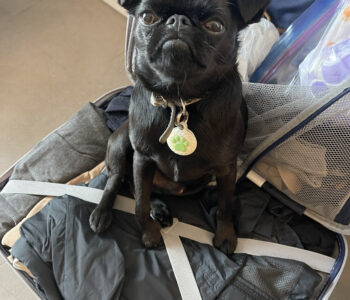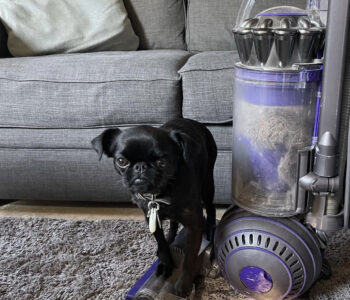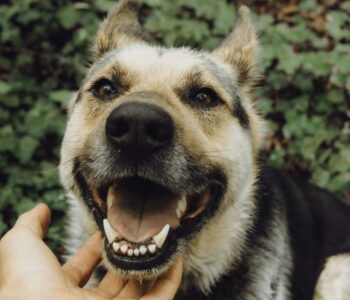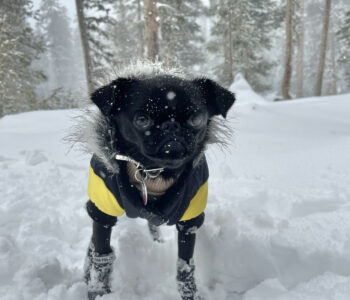Bloat-What dog owners need to know
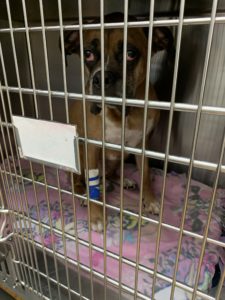 What is Bloat?
What is Bloat?
Gastric Dilatation –Volvulus, more commonly referred to as bloat, occurs when a dog’s stomach becomes distended with food, liquid or gas. Once distended the stomach can rotate or twist causing a life threatening condition where blood flow is decreased to the stomach and an animal quickly goes into shock.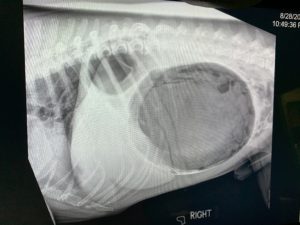
Does it occur only in large breeds?
Certain breeds, like large or giant breeds, are more likely to develop bloat due to their body confirmation, specifically their deep chests. The breeds most commonly affected include: Great Danes, Irish Wolfhounds, German Shepherds, and Standard Poodles. However, any breed can develop bloat.
What are the common signs of bloat?
Animals suffering from bloat may initially have trouble swallowing, drool excessively, try to vomit (though typically nothing comes out), pant, pace and act uncomfortable. As the condition progresses and the stomach rotates and compromises blood flow the animal may go into shock and then will exhibit signs common to shock which may include: pale mucus membranes, tachycardia, collapse, etc.
What to do I do if I suspect my dog might have bloat?
If you think your dog may be suffering from bloat it is imperative that they receive treatment immediately. Call your veterinarian or go to the nearest emergency clinic for treatment. Left untreated bloat can be fatal within a few hours. If you see any of the above signs or are concerned that your pet may be developing bloat don’t wait, call your veterinarian immediately for assistance
Is Bloat or GDV preventable?
The best way to prevent gastric dilatation-volvulus in at risk breeds is to have your veterinarian preform gastropexy surgery. This is often done when your dog is young and is spayed or neutered. This procedure attaches the stomach to the body wall so that it is unable to twist if dilated. While it does not prevent gas dilation of the stomach it does prevent the stomach from rotating which is the reason GDV is life threatening.
How do you treat GDV?
Again its important people realize that bloat is a medical emergency and requires immediate treatment. The first thing your veterinarian will do is stabilize your dog, as most will be in shock. This will likely involve giving intravenous fluids, pain medication (bloat is very painful), antinausea medication and more. Then your veterinarian will remove the air, fluid or food from the stomach. Once stable immediate surgery is needed to reposition the twisted stomach.
Can dogs get bloat twice?
Yes unless a gastropexy is performed a dog can develop bloat again. Even with a gastopexy an animal can develop gastric dilation but should not have twisting or rotation of their stomach, which is what causes an animal to go into shock and is ultimately fatal if untreated.
Common myths about Bloat or GDV:
There are a lot of myths out there about bloat. One of them is that giving your dog simethicone (gas X) will prevent bloat. Unfortunately this is has not been proven to be effective for treating bloat. Another common myth is that drinking ice water can cause a dog to bloat. Again there is no scientific evidence to support this theory.
For more information about bloat or if you have any questions about bloat prevention it is always best to speak with your veterinarian.


